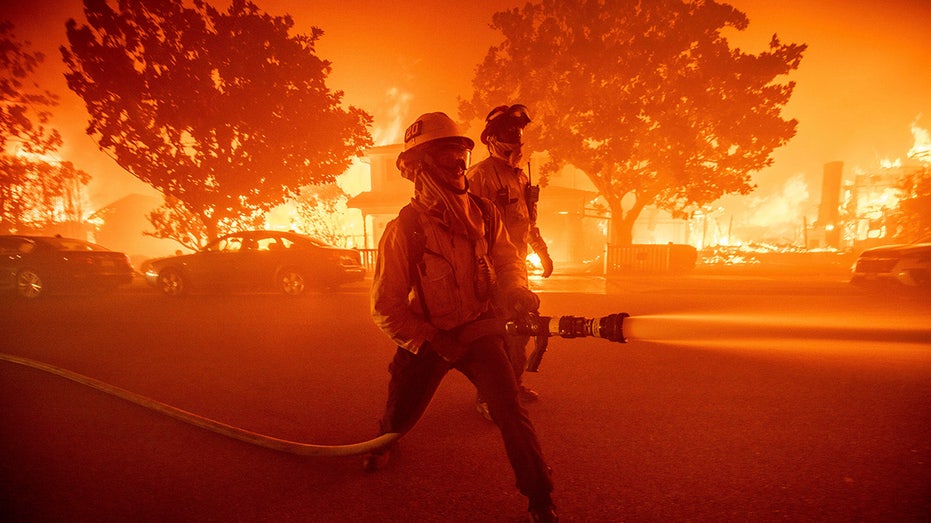- by foxnews
- 08 Apr 2025
Los Angeles fires: Saltwater used to combat flames comes with immediate benefits but long-term risks
Firefighters have taken the rare but not unusual move of scooping up ocean water to help battle the flames as wildfires rage across Southern California.

Saltwater can damage equipment, infrastructure and wildlife - but sometimes firefighters need to use it anyway, according to Frank Papalia, a former New York City Fire Department lieutenant and a fire safety expert at Global Security Group.
"When someone falls down, gets hurt, possibly broke their neck or something like that, you don't move them. [But] if there's a fire around them, or there are chemicals around them and stuff, they're gonna die. So you have to move them - you have no choice," he told Fox News Digital.
The main way to use saltwater to fight fires is to draw it out of the ocean with a plane or helicopter and dump it from above, he said.
While saltwater can damage infrastructure, kill wildlife and have other consequences, sometimes it's a necessary trade-off, Papalia said.
"In this case, your city is burning to the ground, so using the saltwater is not that bad," he told Fox News Digital. "The problem is they are limited to how many aircraft they can fly at one time, how far they have to go, and how much water those can hold. You couldn't fly yesterday because of the wind."
Current fire hydrants don't use saltwater for several reasons. They use the same pipes supplying fresh tap water to homes and businesses. They are not corrosion-resistant. And the cost of installing a new saltwater hydrant system connected to ocean pumps "would be ridiculous," Papalia said.
Fire hydrants also rely on pressure, which is lost with each hydrant open at the same time.
But the firetrucks themselves can use saltwater - they just have to be close enough to get it and require thorough cleaning afterward.
"We have them at JFK," Papalia said about the airport in New York City. "We pump the water out of Jamaica Bay. If you're gonna do that at the beach, how are you gonna get the firetruck into the sand?"
Neighboring states, including Washington, Oregon, Idaho, Utah and New Mexico, have also sent firefighting assets.
"There's no question this is gonna be one of the worst fires in the history of the world," Papalia said.
- by foxnews
- descember 09, 2016
Ancient settlement reveals remains of 1,800-year-old dog, baffling experts: 'Preserved quite well'
Archaeologists have recently unearthed the remarkably well-preserved remains of a dog from ancient Rome, shedding light on the widespread practice of ritual sacrifice in antiquity.
read more


